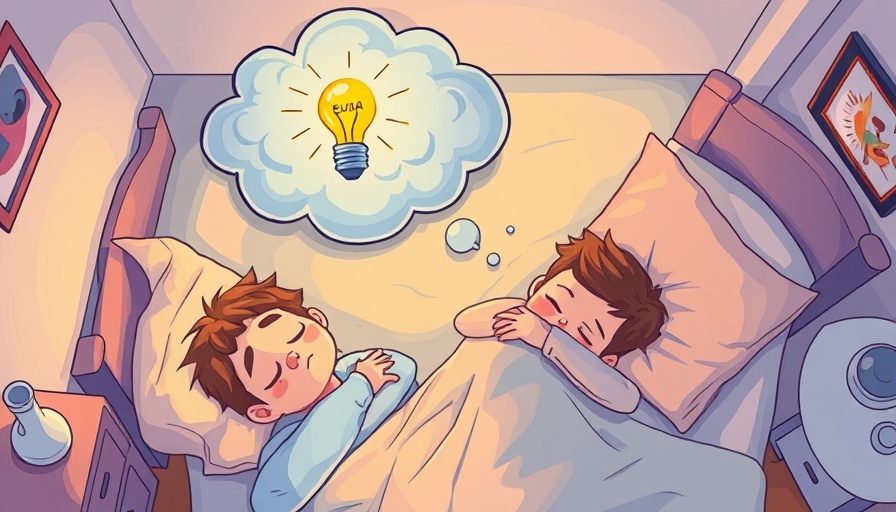
Unlocking the Power of Deep Sleep for Creative Breakthroughs
Have you ever experienced that exhilarating moment of clarity after taking a short nap? A recent study suggests that those "aha" moments might be more than just a coincidence; they are intricately linked to the quality of our sleep. Particularly, deeper stages of sleep—especially the N2 phase—play a pivotal role in problem-solving and fostering creativity.
Understanding the Science Behind Sleep and Insight
The research, published in PLOS Biology, involved 90 participants who were tasked with tracking moving dots on a screen. While the task seemed straightforward, it contained a hidden trick. After completing their trials, participants were allowed a 20-minute nap while their brain activity was monitored using an electroencephalogram (EEG). Following the nap, an impressive 70.6% experienced an epiphany regarding the task. However, for those who reached deeper N2 sleep during their nap, the success rate soared to 85.7%. This correlation between deep sleep and sharp mental insights could offer valuable insights into how we approach problem-solving.
Why Deeper Sleep Matters
During N2 sleep, your brain shifts gears, moving into a mode that is more conducive to making novel connections. Researchers discovered that EEG patterns associated with deeper sleep were linked to these insightful moments. Co-author Nicolas Schuck remarked, "It's really intriguing that a short period of sleep can help humans make connections they didn't see before." The precise mechanisms remain unclear, but there is excitement in exploring this connection further.
Breaking Down Common Misconceptions About Naps
Many people may view napping as a sign of laziness or inefficiency, but this new research highlights its importance, especially for those with sleep disorders. Naps can be a powerful tool for boosting cognitive function, enhancing creativity, and improving overall quality of life. An earlier study conducted by the same team showed that even without naps, about 49.6% of participants could find their insights. However, introducing a nap increases the chances significantly, reinforcing the idea that rest is an underappreciated aspect of productivity.
Real-Life Applications: Enhancing Daily Productivity through Napping
For those struggling with sleep disorders, this information can be crucial. Understanding that deeper sleep can aid in problem-solving provides an incentive to prioritize sleep hygiene. Whether it be through creating a conducive sleeping environment or recognizing the importance of scheduled breaks during the day, effective strategies can lead to better sleep and more frequent inspiration.
Adopting Healthy Sleep Habits
To encourage deeper sleep, consider implementing a few healthy habits into your lifestyle:
- Establish a sleep routine: Go to bed and wake up at the same time every day.
- Create a comfortable sleeping environment: This includes a dark, quiet room and a comfortable mattress.
- Avoid screens before bed: The blue light emitted can interfere with your sleep cycle.
- Consider relaxation techniques: Meditation or gentle yoga can prepare your brain for sleep.
Incorporating these habits can help maximize the benefits of deeper sleep, positioning you for those crucial moments of insight in both your personal and professional life.
What's Next: The Connection Between Sleep and Insight
As this research opens doors to new questions, such as the specifics of EEG spectral slopes in relation to cognitive processes, experts aim to unravel the mystery further. Continued exploration in this area could provide transformative insights not just for those with sleep disorders, but for anyone seeking to enhance their creative thinking and problem-solving abilities.
So, if you've been racing against the clock at work or struggling with a personal project, it might just be time for a nap. Your next great idea could be waiting for you in those deeper stages of sleep.
 Add Row
Add Row  Add
Add 




Write A Comment